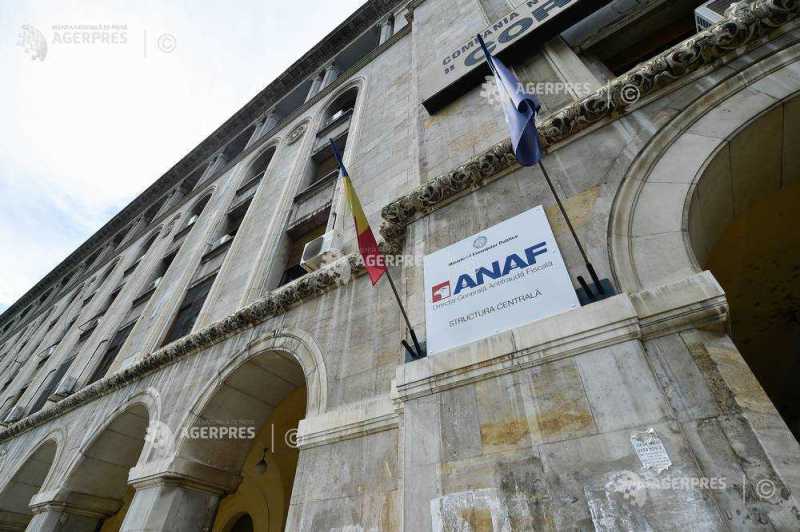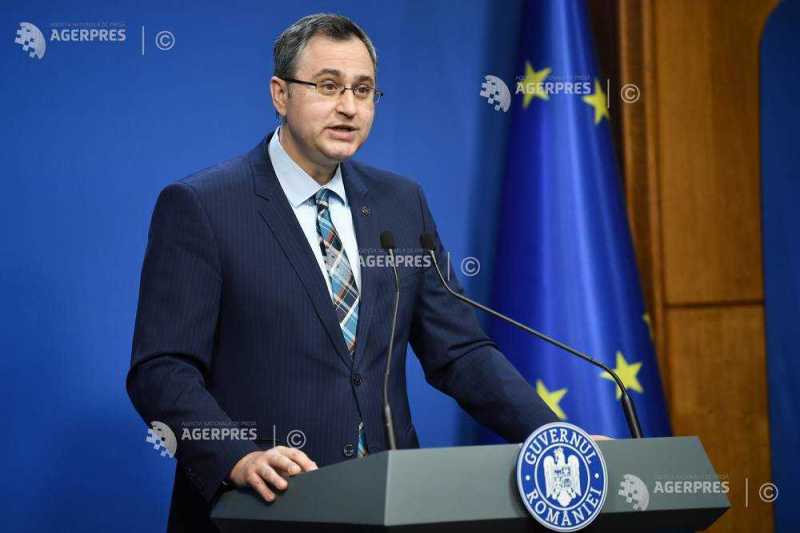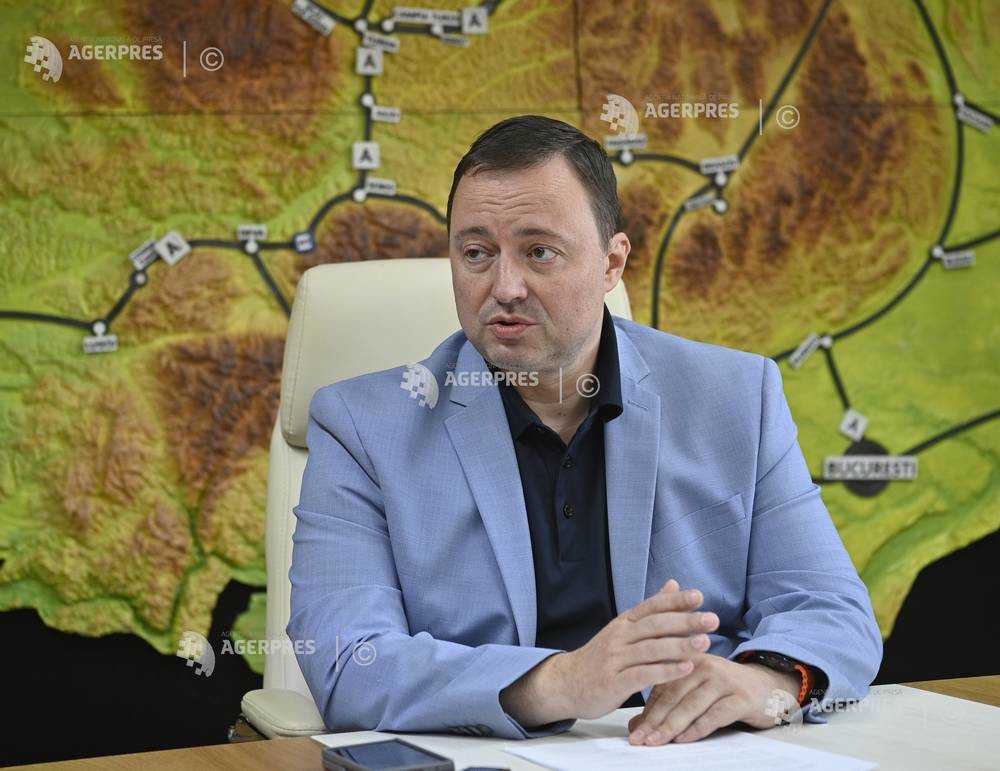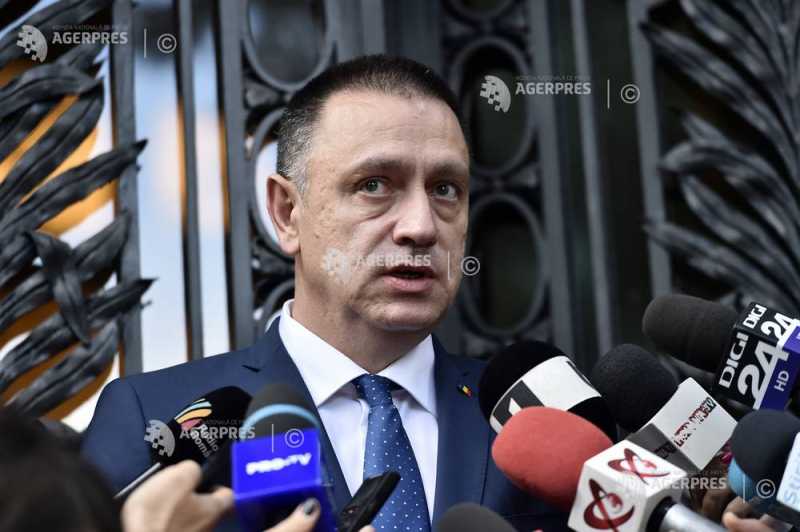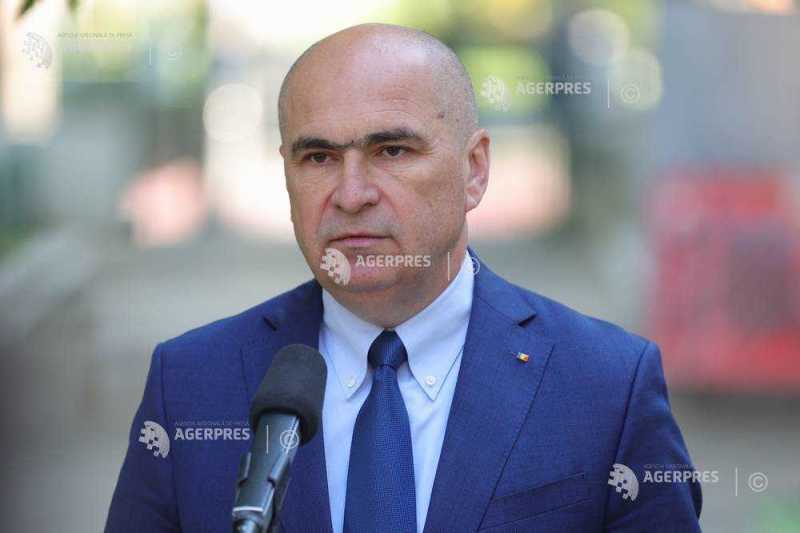Cost of living crisis: Consumers in the Western Balkans boycott supermarkets (enr)

Brussels, Feb 12 /Agerpres/ - Consumers in the Balkans are fed up: Rising prices in supermarkets in the region squeeze their budgets for daily necessities. Their answer: Don't shop. A series of retail boycotts has spread from Croatia to Bulgaria. But the question is - will this boycott achieve anything?
It started off in Croatia in late January: In the past weeks, the country has witnessed a significant number of supermarket boycotts as citizens express their frustration over escalating prices, a frustration shared by shoppers in other EU member states and a few of those who want to join the bloc.
The shop boycott was initiated by a Facebook group called 'Hello, Inspector' ('Halo, inspektore' in Croatian), the movement gained support from consumer protection groups, trade unions, political parties, and even the minister of the economy.
'Today we will boycott everything again, from supermarkets to pharmacies, bakeries, cafes and restaurants. Let us not enter any shops or hire any services' - Josip Kelemen, Halo, inspektore
Kelemen spoke ahead of the third round of Croatian boycotts on February 7. The initiative started with messages circulating on social media, urging citizens to refrain from buying anything. The organisers called first for boycotting major internationals such as Germany's Lidl or the Italian discounter Eurospin, and later for a week-long boycott of the Croatian retail chain Konzum, which ends on February 14.
Since then, the movement has spread across the Balkans region to Bosnia-Herzegovina, Montenegro, North Macedonia, Bulgaria and Serbia.
Less bread in the basket
The problem is twofold - on the one hand the high prices make it difficult for many consumers to make ends meet, on the other hand local producers say they cannot compete with the big chains due to cheaper imports and the prices paid to them not covering production costs.
Economists explain the new wave of price growth in Croatia by strong growth in personal consumption and total domestic demand and on the other hand by limited growth on the supply side. A large part of the demand side is generated by the state due to the large influx of European funds, cohesion funds and funds for recovery from the pandemic.
Living costs are rising across the EU, as wages and salaries are not keeping up with rising food prices. In Eurostat's Harmonised Index of Consumer Prices (HICP), the EU average on food prices stood at 145.2 points as of December 2024, from the baseline of 100 in 2015. In Croatia, food prices were up above the EU average at 148.7, in Romania at 166.2 and in Bulgaria at an eye-watering 174.4 points.
In the Euro area, Eurostat estimated annual inflation was 2.5 percent in January. The inflation rate for food items, alcohol and tobacco stood at 2.3 percent. In the two western Balkan countries that have the Euro - Slovenia and Croatia - the inflation rate was at 2.3 percent and 5 percent, respectively, making Croatia's the highest in the Eurozone.
Spreading boycotts
Consumers in the EU candidate countries Bosnia and Herzegovina, Serbia, North Macedonia and Montenegro have also caught the boycott bug.
Citizens in Bosnia and Herzegovina (BiH) are increasingly feeling the pressure of rising prices - living standards decline as wages fail to keep pace with growing living costs. To reverse this trend, the informal group 'Bojkot u BiH' called for a boycott of major retail chains across social media on February 7 and 8. Turnover fell on both days.
On January 31 and February 7 supermarkets in North Macedonia were half-empty, with people shopping at green markets and local shops, or not shopping at all. Citizens support the campaign, although they are not sure if a one-day boycott can solve problems, claiming that prices are permanently going up while wages are at a standstill. Ahead of the boycott, some retailers announced discounts and benefits for consumers, while blaming suppliers for the rising prices.
The Serbian consumer organisation 'Efektiva' called on consumers for a one-day boycott of retail chains on January 31, recalling that last October, the Commission for the Protection of Competition initiated proceedings against four retail chains on suspicion of price fixing. It also announced a new boycott under the motto 'Do you want to be robbed or not?'. Starting on February 10, five large retail chains - Delhaize, Mercator, Univexport, DIS and Lidl are to be boycotted for five days.
Boycotts took place in neighbouring Montenegro on January 31, as well as February 7-8. 'Every day we witness unprecedented increases in the price of basic products, while the owners of large chains accumulate profits at the expense of the people. It is time to say: enough!', the organisation 'Alternative Montenegro' said on social networks.
The action was supported by Prime Minister Milojko Spajiæ, some NGOs and unions, while it was opposed by the Chamber of Commerce and the Montenegrin Consumer Association.
The idea has also been spreading to Bulgaria, where four organisations called for a boycott of retailers and grocery stores on February 13, according to Velizar Enchev, coordinator of the initiative and former Bulgarian ambassador to Croatia.
Not affected by the movement so far have been Albania and Slovenia, while Romanians remain on the fence.
Romanians have been urged by some politicians to boycott supermarkets for one day, arguing that they do not sell Romanian products. Instead, Agriculture Minister Florin-Ionuț Barbu said he believed that such a boycott would mean 'the bankruptcy of Romanian processors', as 70 percent of the products in retail stores in Romania are made by Romanian food processing companies.
There has been no boycott of supermarkets in Albania, despite sporadic calls on social networks. The government last year raised salaries of public servants, increased pensions and this year lowered electricity prices. The increase in wages and pensions was not accompanied by a significant increase in prices in supermarkets.
Neither has there been any organised boycott of shops in Slovenia, although high food prices are a major issue in public debate. According to the national Statistics Office, food and non-alcoholic beverages prices have stabilised in 2024 after a period of soaring growth. However, shopping centres in Slovenian towns along the Croatian border have recorded a spike in footfall during the Croatian boycott. Shoppers from Croatia say that food and cleaning products in Slovenia are much cheaper. Meanwhile, Slovenian shoppers are once again more frequently heading to neighbouring Italy for cheaper purchases.
Capping prices
If the boycotts have more long-term effects than raising awareness remains to be seen, but one reaction has been the move by politicians to call for price-caps.
BiH's government has promised to freeze prices for 50 products, while the government of the entity Republika Srpska has announced enhanced inspection controls and stricter penalties for retailers who unjustifiably raise prices.
In Bulgaria, the centre-left alliance BSP - United Left has tabled a bill to set a maximum markup cap on staple foods, said MP Nina Dimitrova. MRF - New Beginning also introduced a similar bill. The two political forces are anxious that hundreds of thousands of citizens cannot afford the most basic food products due to high inflation. The country's Association for Modern Trade (AMT) on the other hand, made such price caps responsible for pushing inflation higher.
The Croatian government responded to the boycotts by expanding the list of products subject to price caps by 40 new products, including flour, milk, meat, bread, pastries, juices, and hygiene products, among others.
Much ado about nothing?
In North Macedonia the Public Revenue Office has said that turnover in the eight largest market chains on January 31 dropped by 46.59 percent compared to the same day a week before. However, data also shows that turnover was higher by 11.2 percent on the day after the boycott.
Prime Minister Hristijan Mickoski has voiced understanding for the boycotts and called for dialogue with producers, distributors, retail chains and consumers, in order to avoid an escalation of the situation. According to him, some producers, suppliers and retailers use tricks to increase product prices, justifying the move by higher prices at stock markets. 'We know this is not the case,' says Mickoski.
Minister of Economy and Labour Besar Durmishi said it is the consumers' right to decide how and where they will spend their money.
Data from the Montenegrin Tax Administration showed that the January 31 boycott was successful, as the five largest retail chains recorded a 56.14 percent drop in revenue compared to the same period a week earlier. However, the data also revealed that these five chains saw an increase in revenue of 1.1 million Euro in total the day before and the day after the boycott compared to the same days the previous week.
Equally in Serbia, the tax administration said that on January 31, total turnover of the five targeted retailers was down by roughly one third compared to the day before.
In Croatia, where it all started, the first nationwide boycott on January 24 led to a 44-percent-drop in transactions and a 53-percent-decrease in sales value. A second boycott on January 31 brought a smaller drop in sales, and it lost further steam in a third so-called Buy Nothing Friday on February 7.
It remains questionable how much the boycott can contribute to slowing inflation. In any case, it makes people incredibly angry when they see that certain products in Croatia, which joined the Euro in 2023, are more expensive than in some more developed EU member states.
The content of this article is based on reporting by Agerpres, ATA, BTA, EFE, FENA, HINA, MIA, MINA, STA, Tanjug as part of the European Newsroom (enr) project. AGERPRES (editing by: Mariana Ionescu)
The content of the www.agerpres.ro website has the exclusive purpose of public informing.
All the information published on this website by AGERPRES is protected by relevant legal dispositions.
It is forbidden to copy, reproduce, recompile, decompile, distribute, publish, display, modify, create derived components or products or full services, as well as any exploitation of the site's content.
Details in the section Terms of Use. If you are interested in picking up AGERPRES news items, please contact the Marketing Department – [email protected].
The use of the Comments section entails your obligation to respect the AGERPRES terms and conditions in regards to the publishing of comments on the www.agerpres.ro.
Other news in category
European projects for interoperability of chatbot-type systems in taxation area, completed
Romania played a leading role in coordinating two successfully completed European projects aimed at ensuring the interoperability of chatbot-type systems in the taxation area, the National Agency for Fiscal Administration (ANAF) announced on Friday. 'On May 6-7, 2025, in Bucharest, a meeting of representatives from the tax administrations of several Europe
Energy Ministry renegotiating postponing deadline for closing coal-fired power plants
The Ministry of Energy is insisting on renegotiating the National Recovery and Resilience Plan (PNRR) and postponing the deadline for closing coal-fired power plants, otherwise, this would further increase pressure on prices, Minister Sebastian Burduja wrote Friday on his Facebook page. 'Romania's energy security is non-negotiable. Since the beginning
PresidentialElections2025/Nicusor Dan: Romanian authorities were not prepared for the hybrid war
The Romanian authorities were not prepared for last year's hybrid war, the independent presidential candidate, Nicusor Dan, stated on Thursday evening, during the debate with his opponent in the race, George Simion, at the Euronews television channel. The two candidates in the second round of the presidential elections, Nicusor Dan and George Simion (AUR -
Romanian Orthodox Church's Patriarch Daniel to Pope Leo: We are fully convinced you'll promote dialogue
The Patriarch of the Romanian Orthodox Church, Daniel, on Thursday sent a congratulatory message to His Holiness Pope Leo XIV, in which he expresses his full conviction that the new Sovereign Pontiff will continue to promote 'the spirit of dialogue, peace and cooperation between the Roman Catholic Church and the Orthodox Church.' 'We are fully conv
Famous astronauts to attend SpaceFEST 2025 in Bucharest
The 3rd edition of SpaceFEST, to be attended by world-famous astronauts, will take place between May 9 and 11 on the campus of the National University of Science and Technology of the Politehnica polytechnics university of Bucharest. The event is organised by Politehnica, through the Faculty of Aerospace Engineering, in collaboration with the Romanian Space Ag
PresidentialElection2025/Nicusor Dan reinforces commitment to Euro-Atlantic path of Romania in message to Concordia Employers' Confederation
General Mayor of Bucharest Nicusor Dan, an independent candidate in the presidential elections, responded in message to the president of the Concordia Employers' Confederation, Dan Sucu, on Wednesday, that private property is 'essential' to encourage Romania's progress. The mayor added that these days, 'more than ever', entrepreneurs an
ICR: Exhibitions, concerts and educational projects - organized on Europe Day at home and abroad
The Romanian Cultural Institute (ICR) will organize a series of cultural activities - exhibitions, concerts and educational projects - in Romania and the Republic of Moldova and through its representative offices and EUNIC clusters abroad on the occasion of Europe Day. According to an ICR press release, sent to AGERPRES on Thursday, the program of events inclu
Spokesman Constantin, after first meeting of caretaker gov't: Gov't acting within constitution's confines
The priorities of the caretaker government regard securing the balance of the private economic circuits for the financial markets, Romanian companies, civil society, for all Romanian citizens, governmental spokesman Mihai Constantin said on Thursday. 'A first meeting under the leadership of caretaker Prime Minister Catalin Predoiu. The government of Romani
Romania's first high-power hub for charging electric vehicles opens near Miercurea Sibiului
Romania's first high-power hub for charging electric vehicles opened on Thursday on the A1 motorway, near Miercurea Sibiului, announced Director General of the National Company for Road Infrastructure Administration (CNAIR) Cristian Pistol. 'Today, Romania's first high-power hub for charging electric vehicles has opened! The heavy-duty vehicle (HDV
EconMin Ivan: Romania is still a stable country, where you can do serious business
Romania is still a stable country, a country open to foreign investment and a country where 'serious, very safe business' can be done, interim Minister of Economy Bogdan Ivan said on Thursday. He was asked, before a government meeting, how serious the political instability in Romania today is for the economy. 'We look at the figures,
Mihai Fifor (PSD Arad): Turning aside - most toxic and cowardly option
Chairman of the Arad branch of the Social Democratic Party (PSD), MP Mihai Fifor, voiced hope on Thursday that politicians will not be 'so immature' as to leave the outcome of the May 18 election to chance, saying that 'turning aside is perhaps the most toxic and cowardly option.' The Social Democrat leader from Arad shared his opinion in a Fac
Spain and Portugal blackout puts EU's ageing power grid in the spotlight (enr)
While the blackout lasted less than 24 hours, it caused shockwaves across Europe and raised questions that will linger for much longer. When lights went out across Spain and Portugal last week, trains stopped, phones died, and entire cities were plunged into darkness. It was a stark warning for Europe's ageing electricity grid, which is under growing press
Romania contributes 23pct of the agricultural workforce in the EU
Romania is one of the most important countries in the European agricultural sector, considering that 23% of the total agricultural workforce in the EU, 1.77 million jobs, is concentrated here - the largest share in the Union, according to a recently launched profile report. Romania owns approximately a third of all farms in the EU, although 90% of them are und
Romanian, Moldovan parliaments host cultural event 'From the Flower Bridge to the Press Museum'
The Senate's committee on culture and media on Tuesday organized, at the Madrigal Galleries of the Palace of Parliament, an event of cultural diplomacy, collective memory and identity affirmation, entitled 'From the Flower Bridge to the Press Museum - Pages of History,' in marking 35 years since the respective emotional moment [of the 'flower bridge' betw
UPDATE PresidentialElection2025/ Ilie Bolojan: Every Romanian who goes to vote will make history
Every Romanian who goes to vote in the runoff of the presidential election 'will make history', said on Wednesday interim President Ilie Bolojan, calling on 'Romania that understands that performance is done seriously and not with scandal.' He participated in the Romanian Business Leaders' Summit. 'Romania does not change


